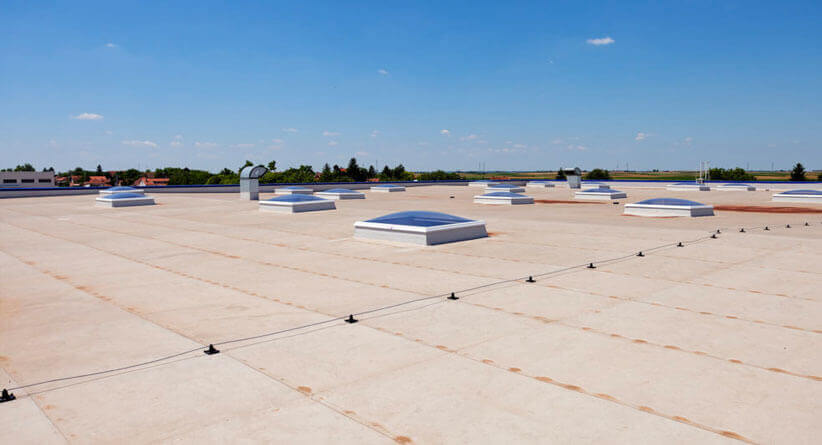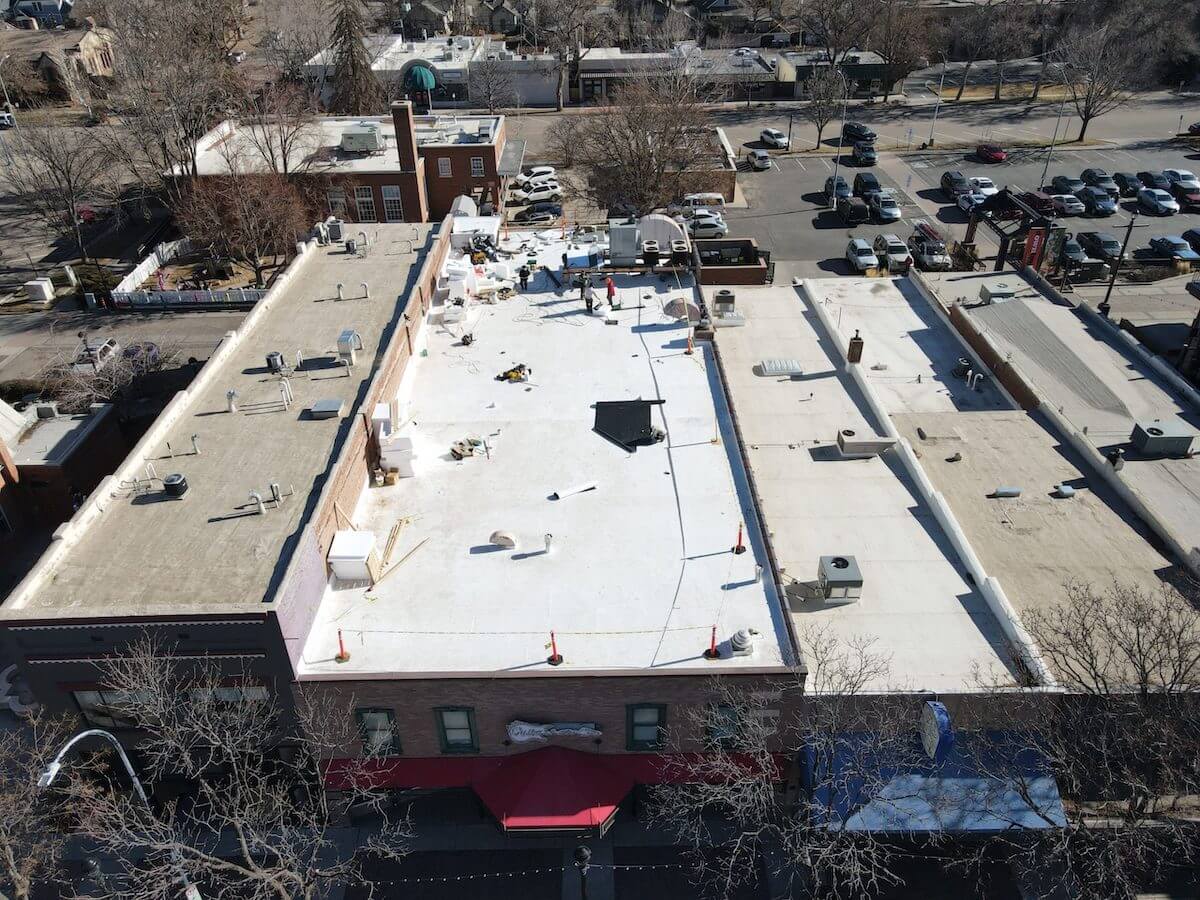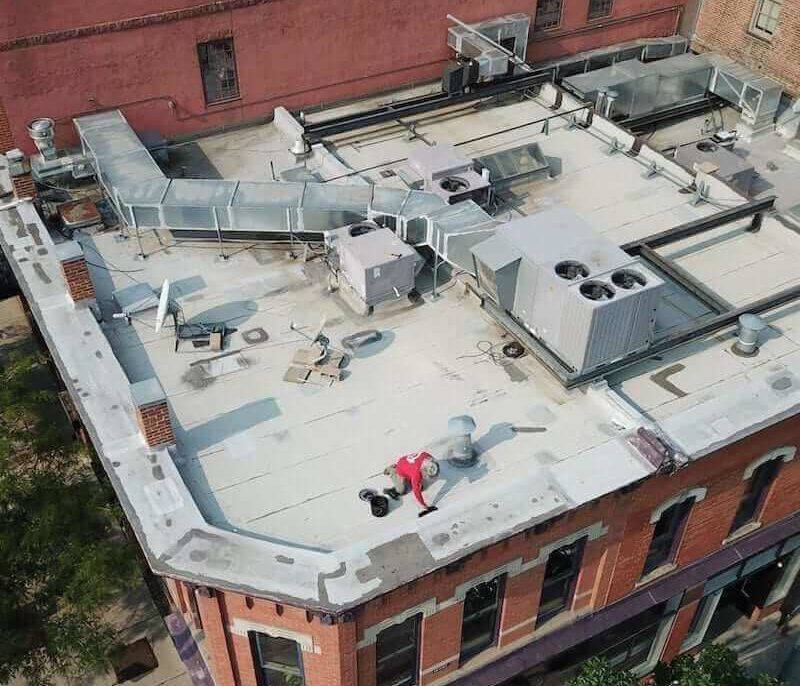Flat roofing is a traditional commercial roofing system made popular thanks to its utility and practicality. Flat roofing systems allow Denver roofing companies and our clients to maximize usable space both inside and outside the building all while offering appropriate water drainage and weather protection.
At PRQ Exteriors we have found that while many of our clients know they want a flat roofing system installed on their commercial building, they are unaware of how exactly flat roofing function and what their flat roofing options are.
As one of the premier Denver roofing companies, the PRQ Exteriors team wants to make sure you and our clients are informed. Today we are explaining what exactly flat roofing is and discussing the pros and cons of the most common materials. Keep reading below to learn more.



What is a Flat Roof?
While a flat roof may appear flat to the untrained eye, it is important to know that no roof is ever truly flat. All roofing systems require a low slope to ensure proper drainage, a completely flat roof would lead to water pooling and leakage. On commercial flat roofing the pitch of the roof is typically between 1 and 10 degrees, while low slope roofs can have a pitch of up to 25 degrees.
When installing a new flat roof, Denver roofing companies should discuss the trade-offs of different pitches with you. When making roofing decisions it is important to remember that flatter roofs maximize space saving utilization, but can also increase the chance of water build up and leakage.
Built Up Roofing Systems
Built up roofing systems (BUR) are a popular commercial flat roofing option. BUR are constructed by alternating layers of asphalt paper and tar on the roof, forming a watertight and durable seal. BUR can be a costly roofing option because Denver roofing companies must let each layer dry completely before installing the next and typically between 5 and 10 layers are required. However despite the lengthy and costly installation process, BUR roofs tend to withstand the test of time.
Metal Panel Systems
Metal panel systems are another incredibly durable commercial roofing system and are most often found on industrial buildings such as warehouses and factories. Panel systems are the sole metal flat roofing option. The panels typically span between rafters for support and then sealant fills the seams and joints between the panels creating a watertight barrier. Metal panel systems are extremely durable, the only issues they normally face are rust and wind if the panels are not properly installed.
Singly-Ply Membrane Systems
Single-ply membrane systems are a popular flat roofing choice because they are less costly upfront and come in a few different materials, including EPDM, TPO, and PVC.
All three materials come in sections, meaning that sealing the seams to withstand water can be a challenge. PVC and TPO are heat-welded while EPDM uses a liquid adhesive. PVC and TPO tend to offer better water resistance than EPDM, but EPDM stands up better to hail. The experts at professional Denver roofing companies will help you evaluate the pros and cons of each material.
Every roofing project is unique and it is important to evaluate the available options to determine the best fit for your building, budget, and needs. If you are ready to begin your flat roofing system evaluation, the PRQ Exteriors team is here to help. Call us today at 303-214-0703 to speak with our flat roofing experts!
PRQ Exteriors sets the standard for roofing companies in the Denver area by providing quality roofing services and excellent customer service built on great communication. Since 2014, homeowners and business owners in Denver turn to us for trusted, professional roof repairs, replacement, and storm restoration. Click the link below to schedule a free roofing evaluation today!
Denver, CO
Call or Text: (720)-696-9473
Call or Text: (303) 214-0703
13301 W. 43rd Drive Unit 4, Golden, CO 80403
Kansas City
Call or Text: (816) 375-6014
© Copyright 2023 PRQ Exteriors. All rights reserved. Privacy Policy & Terms of Service


